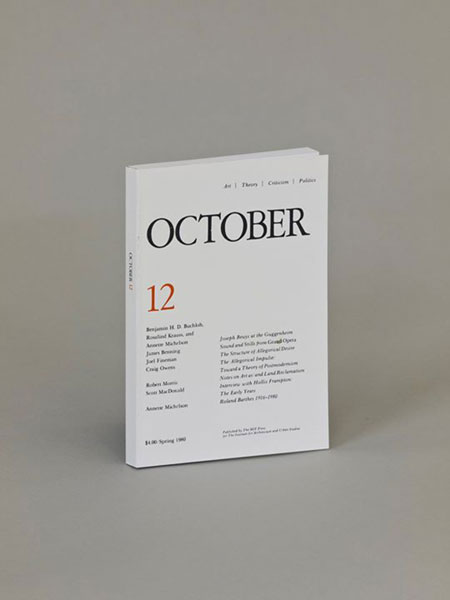In the February issue of e-flux journal, Gleb Napreenko reviews Benjamin H. D. Buchloh’s Formalism and Historicity, suggesting that Buchloh’s vision of an omnipresent and omnipotent spectacular capitalism ignores real fissures and instabilities in this edifice. An excerpt:
Buchloh calls for responsive strategic thinking. Heeding his call, we should ask whether it is possible to tear our eyes away from a totalizing vision of the spectacle, from the mesmerizing investigation of power’s mechanisms and the insistence on an unrelenting social determination, without forgetting its institutional reality. For the investigations that occupy Buchloh promise their own sort of intoxication, albeit one different than that of conservative art, which charms us with illusions and oblivion. The glare from his enlightenment is blinding, and as we observe the patterns Buchloh has detected, we cease to consider the peripheral, the incomplete, or the contested. Despite the undeniable charisma of Buchloh’s total criticism, can we recognize the value of a method that would indulge asceticism only to the extent that such refusal serves the larger project of emancipation, rather than the other way around? For the real fissure of the subject, which Buchloh himself discusses, consists in the detection of the inevitable blind spots that arise in any system of knowledge, panoptical or otherwise. Identifying these fissures—which are present within each of us—can hardly be labeled practically or pragmatically valuable if we deem practical and pragmatic only what is subject to instrumentalization, monitoring, and rational management. And yet, this fissure is inseparable from any attempts to act on current conditions.
Image: Steve Kado, October Jr., 2010. Artists’ book and 45 min presentation. A ¾-scale model of the Spring 1980 issue of October 12.
